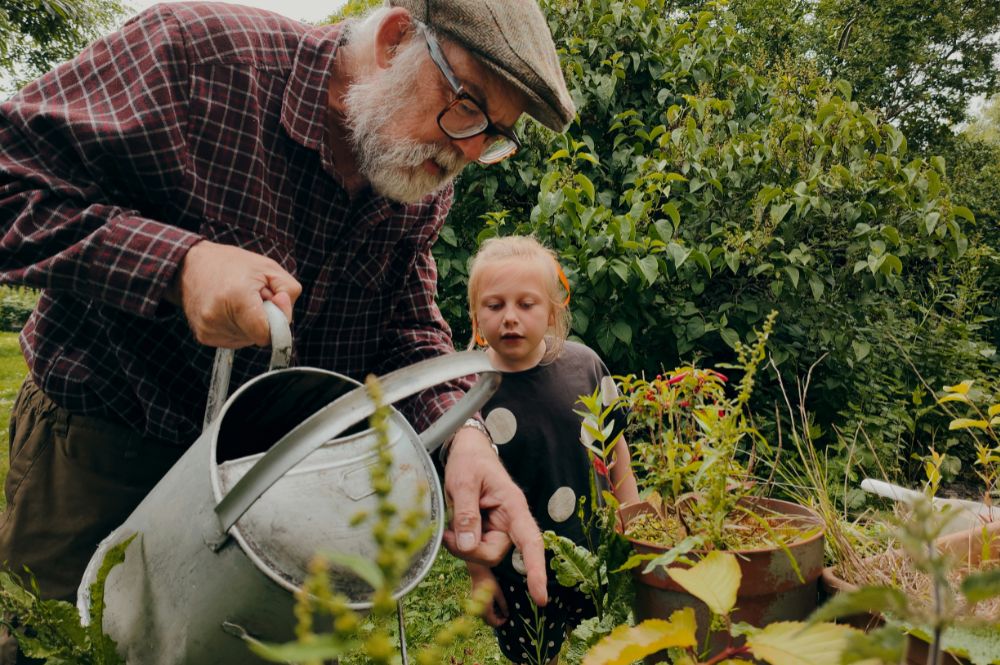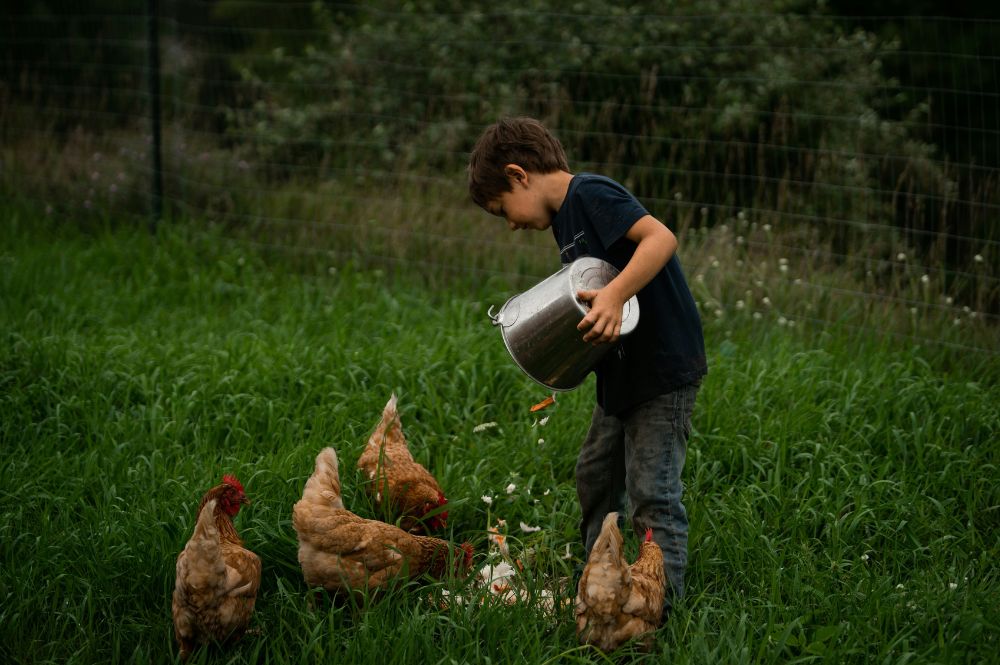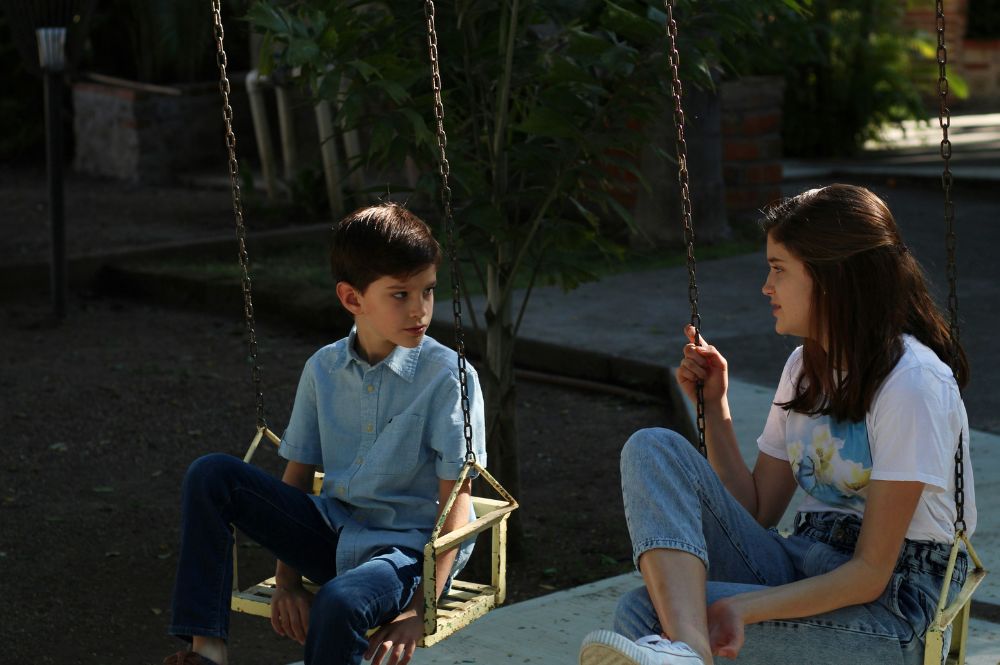
As homeschoolers, we often focus on reading, writing, and math—but what about the practical life skills that help our kids grow into capable, confident adults? What good is mastering long division if a child reaches adulthood and can’t fix a nourishing meal or speak with confidence to a stranger?
How many students graduate knowing how to pass a test, but not how to budget their money, change a tire, or do their own laundry? That’s not a failure of intelligence—it’s simply a lack of training in important life skills.
In a culture so hyper-focused on test scores and achievement, it’s easy to overlook the quiet, ordinary skills that help prepare a child for life. If we want our children to thrive in the world beyond the schoolroom, we need to be just as intentional about cultivating practical skills as we are about teaching academics.
These two spheres of learning are not rivals—they are companions, each strengthening and giving context to the other. I like to picture a balance scale with academics on one side, and life skills on the other, each bringing balance and steadiness.
Over the years, I’ve heard arguments from both sides. Some say book learning should be prioritized above all else, while others argue that pursuits like outdoor exploration and hands-on skills have the most value.
But I can’t help asking: Why not both? Why not design a rich, well-rounded education that nourishes mind, body, and character alike?
If we are aiming to raise capable, thoughtful children, we can’t overlook the fact that both intellectual and practical knowledge will serve them throughout their lives. Imagine sending your child into adulthood not only academically prepared, but truly capable—able to manage a home, solve problems, and care for themselves and others with confidence.

Benefits of Teaching Life Skills
As homeschoolers, we have the unique opportunity to build this kind of well-rounded readiness right into our everyday lives! We have extra time to work with, and we ought to use it wisely.
I know there are many more, but here are three key benefits of teaching kids life skills.
1. Life Skills Build Confidence
A child who can watercolor beautifully, take compelling photographs, or bake a mean apple pie is a child who has built confidence over time. Even simple, everyday tasks—like cleaning a bathroom or organizing a rock collection—can spark a sense of accomplishment.
Developing new skills helps children grow in confidence. And confident kids are more likely to take initiative and try new things, leading to even more growth and resilience. It’s a beautiful cycle!

2. Strong Soft Skills Might Get You Hired on the Spot
I recently heard a story about a young man who accompanied his mother to the bank. While they were there, he was courteous and quick to help his mother with something she needed. The banker she was working with was so impressed by the young man’s demeanor and communication that he offered him a job on the spot! The banker explained that it’s becoming increasingly difficult to find young hires with the kind of soft skills many jobs require.
Our children aren’t born knowing the soft skills they’ll need in life. I certainly wasn’t! In fact, I was painfully shy as a child—even the thought of walking up to a cashier terrified me. Some kids are naturally more comfortable communicating, but most kids need at least some guidance. Practicing soft skills while they’re young will make a big difference as they get older—especially in our day and time where communicating primarily through screens has become commonplace.
3. Capable Kids Don’t Need Screens to Have Fun
The overuse of screens can rob our children of a truly fulfilling childhood.
In this current season of life, we’ve chosen to significantly limit our children’s screen time. We sometimes use educational videos for school, and we enjoy movie nights here and there, but our boys don’t have access to TVs, tablets, computers, or phones during the day.
Once upon a time, we tried giving them regular access to screens, but it quickly drained their creativity and triggered hyperactive behavior, among other things. After we removed screens altogether, our home became a more peaceful place.
These days, our boys rarely ask for screen time. Instead, they happily fill their hours with activities like crafting, painting, tending their own gardens, playing barefoot outside, and building intricate LEGO creations.
When kids spend less time in front of screens and more time learning real-world skills, they gain the confidence to create, explore, and try new things. They’re not content to sit back and watch life happen—they want to jump in and engage with it! Whether they’re baking muffins, building forts, planting seeds, or learning to knit, they’re actively participating rather than passively consuming. And in the end, that kind of childhood isn’t just more productive—it’s a whole lot more fun!

How to Easily Start Teaching Life Skills in Your Homeschool (Even If You’re New to It)
You might be wondering, “Where do I even start?” The good news is that teaching life skills doesn’t require a grand plan or fancy curriculum. It often starts with simple, everyday moments right in your own home!
Start by inviting your child to help with everyday tasks and simple chores. As you work alongside them, chat about what you’re doing—and why it matters.
Take opportunities to model polite conversation and practice phone manners. Try role-playing real-life situations to build their confidence and improve social skills.
Don’t forget to include creative projects and hobbies like painting, baking, gardening, or building things. Not only do they help kids learn hands-on skills, but they also nurture curiosity, improve focus, and bring delight along the way. Plus, they’re a wonderful way to reduce screen time while engaging your child’s imagination.
The key is to keep it fun, low-pressure, and consistent. Life skills grow best when they’re woven naturally into everyday life—not forced or rushed. Remember, every little step makes a difference!
I’ve written some posts that can help you easily start at home:
- 15 Practical Skills Every Young Child Can Learn at Home
- 10 Kitchen Skills Every Young Child Can Learn at Home
- 5 Kitchen Skills Middle Schoolers Can Learn
- Screen-Free Hobbies Your Kids Can Start with Just What You Have at Home
Cultivating Confidence and Character
Academics are important, but they’re only part of a well-rounded education. When we also teach life skills—like cooking, communication, and problem-solving—our kids grow in confidence, capability, and creativity. They learn to engage with the world, not just observe it, and develop habits that will serve them far beyond the schoolroom.
Life skills build character, equip our kids for real life, and create connection. Plus, they’re easier to teach than you might think, and it’s never too early—or too late—to start.








0 Comments